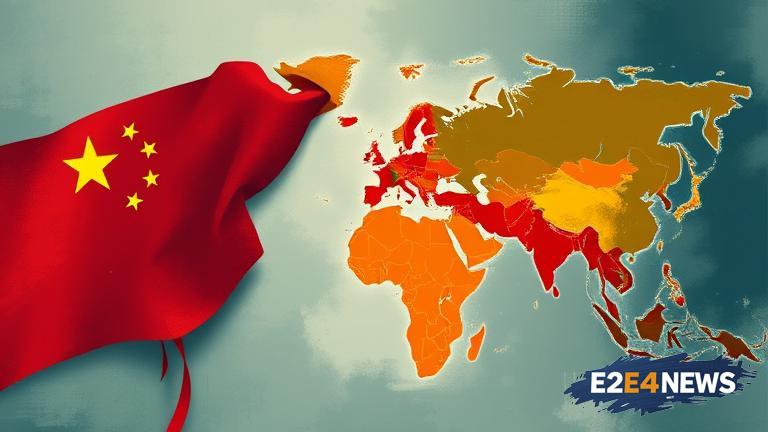The world is witnessing a significant shift in global economic power, with China emerging as a major player. This development is having far-reaching consequences for international relations, trade, and geopolitics. China’s economic rise is driven by its large and growing market, innovative technologies, and strategic investments in infrastructure and industry. The country’s Belt and Road Initiative, a massive infrastructure development project, is connecting China with other parts of Asia, Europe, and Africa, promoting economic integration and cooperation. As a result, China is increasingly influential in global affairs, challenging the dominance of traditional powers. The United States, in particular, is feeling the pressure, as China’s economic expansion erodes its long-held position as the world’s leading economy. The ongoing trade tensions between the two nations are a manifestation of this rivalry. Meanwhile, other countries are taking notice of China’s growing clout, with some seeking to strengthen ties and others expressing concerns about the implications for their own economies and security. The European Union, for example, is navigating a complex relationship with China, balancing its desire for trade and investment with concerns about human rights and unfair competition. In Asia, countries such as Japan and South Korea are watching China’s rise with a mix of admiration and trepidation, as they seek to maintain their own economic and strategic interests. The impact of China’s economic growth is also being felt in Africa and Latin America, where Chinese investment and trade are transforming local economies and societies. However, China’s rise is not without its challenges, including concerns about debt, environmental degradation, and labor rights. As the world adjusts to this new economic reality, there are opportunities for cooperation and mutual benefit, but also risks of conflict and instability. The international community must navigate these complexities to ensure that China’s growing influence contributes to a more prosperous and peaceful world. The rise of China is a testament to the country’s remarkable progress in recent decades, driven by a combination of factors, including government policies, entrepreneurial spirit, and a highly skilled workforce. China’s economic success has lifted hundreds of millions of people out of poverty, creating a large and growing middle class with increasing consumer power. The country’s technological advancements, particularly in areas such as artificial intelligence, 5G, and renewable energy, are also having a significant impact on the global economy. As China continues to grow and evolve, it is likely to play an increasingly important role in shaping the global agenda, from climate change to international security. The world must be prepared to engage with China in a spirit of cooperation and mutual respect, recognizing both the opportunities and challenges presented by its rising influence. In conclusion, China’s economic rise is a defining feature of our time, with far-reaching implications for international relations, trade, and global governance. As the world navigates this new reality, it is essential to prioritize cooperation, dialogue, and a commitment to shared values and principles. By working together, we can ensure that China’s growing influence contributes to a more prosperous, peaceful, and sustainable world for all.
